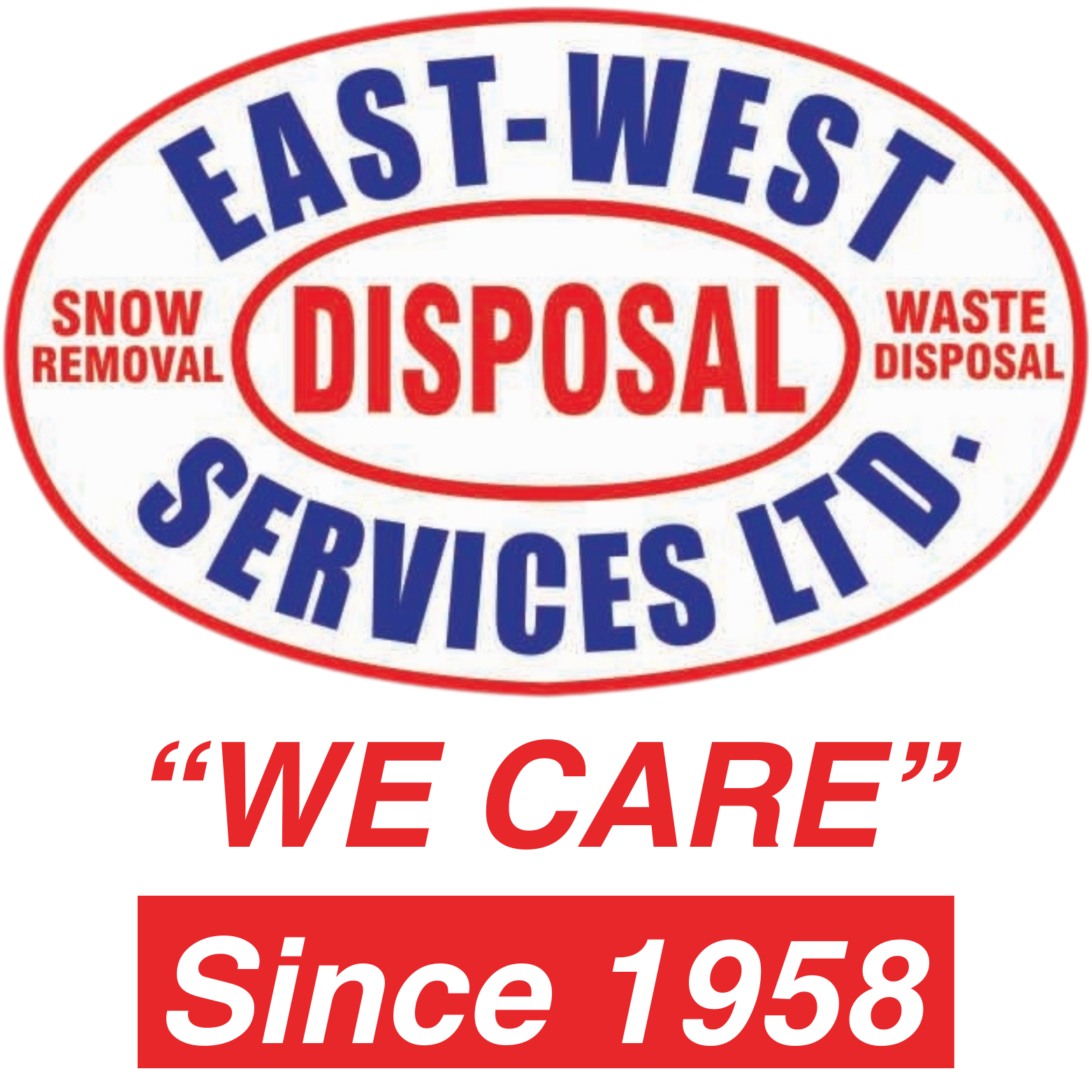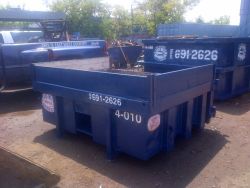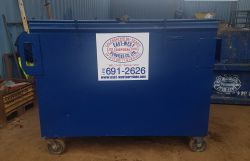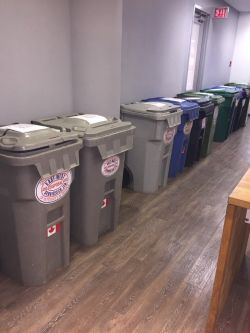Front Loading Containers
(Used for daily/weekly/monthly service under contract.)
A front-end bin (also called a front-load dumpster) is another type of waste container, but unlike roll-off dumpsters, it’s specifically designed for regular, commercial, or industrial waste collection. It’s typically smaller than roll-off bins and is used for ongoing waste disposal rather than large, one-time cleanup projects.
Key Features:
- Lid: Front-end bins typically have a sealed lid, helping to control odors and prevent waste from spilling out.
- Lift Mechanism: The bin is dumped into a truck by a mechanical arm that lifts the bin from the front (hence “front-end”). This is different from roll-off dumpsters, which are manually or hydraulically rolled off and on.
- Shape: Typically rectangular but more compact than roll-off dumpsters.
- Sizes: Commonly come in smaller sizes, typically ranging from 2 to 8 cubic yards, though larger ones can be used for bigger businesses or operations.
Common Uses:
- Commercial or Retail Businesses: Used by offices, restaurants, grocery stores, and small businesses to collect regular waste.
- Multi-family Residential: Apartment complexes often use front-end bins for tenant trash disposal.
- Frequent Waste Collection: Ideal for businesses or properties that need frequent waste pick-up.
- Small to Medium Volume Waste: Suitable for ongoing waste needs rather than major cleanup or construction debris.
Advantages:
- Space-efficient: Since they’re smaller, they don’t take up as much room as a roll-off dumpster.
- Regular Service: These bins are emptied on a regular schedule, which can be daily, weekly, or bi-weekly, depending on the business’s needs.
- Durable & Lockable: Can be made of metal and feature lockable lids to deter pests or unauthorized dumping.
- Cleanliness: Ideal for businesses that need to keep waste disposal neat and contained.
| 2 Cubic Yards |
6′ X 3′ X 3’2″ |
$50 |
| 4 Cubic Yards |
6′ X 4’8″ X 4′ |
$60 |
| 6 Cubic Yards |
6′ X 5’6″ X 5′ |
$90 |
| 8 Cubic Yards |
6′ X 5’6″ X 6’8″ |
$120 |
Contact Us For a Quote Submit an Order Online




